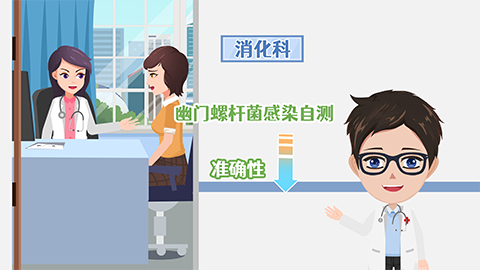Can Helicobacter pylori infection resolve on its own?
Generally, whether a Helicobacter pylori infection can resolve spontaneously depends on the specific circumstances of the infection and individual differences. If experiencing discomfort symptoms such as stomach pain, nausea, or indigestion, timely medical attention is recommended. Detailed analysis is as follows:

In some individuals with strong immunity and mild infections, spontaneous recovery might occur through the body's immune system eliminating the Helicobacter pylori. These individuals may experience no obvious discomfort after infection, as the immune system gradually recognizes and fights off the bacteria, leading to a reduction and eventual elimination of the bacteria. However, this scenario is relatively rare and usually occurs among young individuals with good baseline health.
If the infection is severe or the individual's immunity is weak, spontaneous recovery is uncommon. Helicobacter pylori can continuously multiply on the surface of the gastric mucosa, damaging the mucosal barrier and potentially causing diseases such as gastritis and gastric ulcers. Symptoms such as stomach pain, bloating, and acid reflux may appear. Without intervention, the infection may persist long-term, potentially leading to worsening of the condition or recurrent episodes.
Once a Helicobacter pylori infection is detected, prompt medical consultation is necessary to determine the extent of the infection; waiting passively for spontaneous recovery is not advisable. Daily attention should be paid to food hygiene, avoiding sharing eating utensils and cups to prevent cross-infection. Diet-wise, consumption of spicy, excessively cold, or hot foods should be reduced to minimize gastric irritation.






